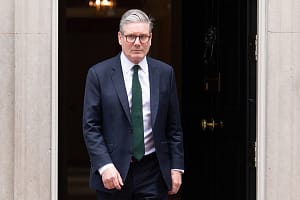Big business and national charities lash out at environmentally-unfriendly policies
The government’s priorities are clear – the economy comes first. Damage to the planet can be addressed when it can be afforded.
But the spate of cuts to subsidies for various green technologies is making powerful international investors concerned about Britain’s sudden change of agenda. In short, they say these changes will now impact Britain’s economy.
And it is not only pressure groups that are furious. A growing number of prominent national charities, organisations and big businesses are urging the prime minister to reverse policies that they say will drive up CO2 emissions.
Pollution on the roads
First up is the AA. You would think the Automobile Association may be an unlikely defender of green policies, but the group described George Osborne’s changes, which make vehicle excise duty (VED) the same for gas-guzzling cars and clean hybrid cars, as “really counterproductive”.
AA president Edmund King said to the BBC: “If the government is serious about trying to get motorists to drive cleaner greener cars, this is really counterproductive.
“Drivers will not be given the same incentive to go for cleaner (petrol or hybrid) cars so there won’t be the same pressure on manufacturers to produce those cleaner models. We seem to be getting rid of an incentive that worked very well.”
As LondonLovesBusiness pointed out after the chancellor’s budget, in which he introduced a “road fund” based on VED, the upkeep of Britain’s roads will become increasingly dependent on high levels of pollution from road traffic.
Green energy? No thanks
Siemens – the largest engineering company in Europe, which has recently invested £160m in a wind-turbine factory in Hull – has lashed out at reforms to wind subsidies, and has warned that “doubt and uncertainty discourages investment decisions”.
Speaking to the FT, Siemens head of energy strategy Matthew Knight said: “We hope to see more clarity in some key policy areas soon.
“We need to take energy policy out of party politics so that political risk does not push up the cost of every type of generation.”
Energy Secretary Amber Rudd said: “My priorities are clear. We need to keep bills as low as possible for hardworking families and businesses while reducing our emissions in the most cost-effective way.”
“Very angry”
Waste firm Veolia said that a cut to industrial biomass electricity generation subsidies would hit the company and affect investment.
Veolia’s Richard Kirkman said to the BBC: “We are very angry that the government has made a U-turn on subsidies agreed until 2023 with just one month’s notice. This isn’t a way to run a government and give business the confidence to invest.
“There’s tens of thousands of jobs at stake in this sector – business can’t continue to invest if it doesn’t know where the government is going on policy.”
Charities’ “major concern”
Ten charities including the National Trust, the RSPB, Greenpeace and WWF have today written a joint letter to the government raising “major concern” over green policies which have been “cancelled or weakened over the past three months”.
“We have, as yet, seen no positive new measures that would restore the health of the environment or grow the low carbon economy,” they wrote. You can read the full letter here.
Some of the government’s key changes to green policies:
- Cuts to subsidies for onshore wind
- Cuts to subsidies for commercial solar power
- Cuts to subsidies for industrial biomass burning
- Increases on VED for clean vehicles
- Axing current plans for zero carbon homes
- Scrapping the Green Deal insulation scheme
- Making a U-turn to allow fracking in national parks
- Shale gas exploration will be allowed in areas used for drinking water
- Lifting a ban on pesticides in some areas where bees are in decline
- Introduction of a carbon tax (the climate change levy) to the renewables industry – the industry the tax was originally designed to support
Now read

Boris is “engineering” Tube strikes in August and “Londoners deserve better”

Jeremy Corbyn – underdog becomes top dog as Unison joins Unite in announcing support








Leave a Comment